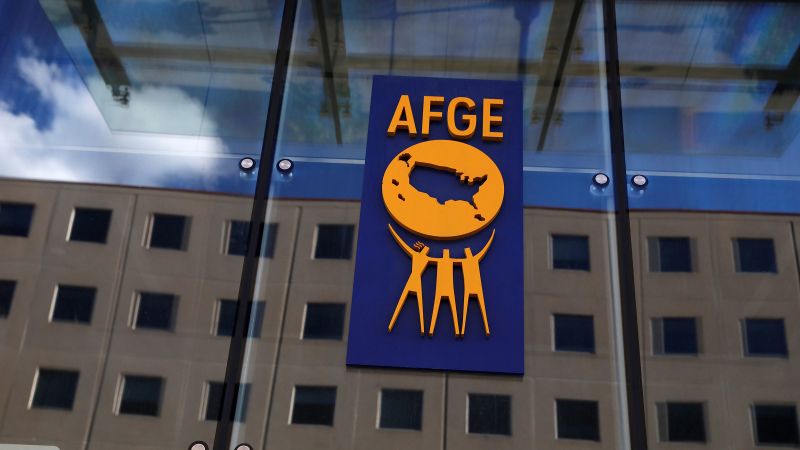The American Federation of Government Employees (AFGE), the largest union for federal employees in the United States, is facing significant challenges in the wake of President Donald Trump’s administration’s policy changes. The union is reportedly planning to reduce its workforce by more than half, a drastic measure anticipated to bring its total staffing down to around 150 employees from the current 355. This announcement follows President Trump’s executive actions aimed at undermining collective bargaining rights for a large segment of federal workers, leading to considerable unrest and legal challenges from the union.
The impending layoffs, which are expected to impact a wide range of positions including organizers, national representatives, and support staff, could take effect as early as June. Despite the downturn, AFGE, which represents over 800,000 federal employees across various sectors, has publicly stated its commitment to continuing the fight for workers’ rights and collective bargaining capabilities. In an official statement, the union characterized the recent developments as a setback rather than a defeat, emphasizing that they would not be silenced or intimidated by the pressures of the administration.
This situation has its roots in an executive order signed by President Trump in March, which aims to strip collective bargaining rights from numerous government employees spread across over a dozen federal agencies. AFGE alone represents more than 660,000 workers within the sectors impacted by this order, and the union has filed various lawsuits in response to these administrative moves. The president justified this executive action by associating it with enhanced national security, although critics claimed that the decision was fundamentally an attack on labor rights, particularly citing the desire to curb unions who allegedly oppose Trump’s policies.
Legal developments continue to unfold, as a federal judge recently placed a hold on Trump’s executive order following a legal challenge initiated by the National Treasury Employees Union (NTEU), the second-largest federal workers’ union. However, despite this judicial intervention, AFGE representatives indicated that the ruling would not be sufficient to halt their planned layoffs given the specific scope of workers affected by the ruling.
The financial impact of these policy changes is acute and continues to deepen for labor unions. In March, guidance issued by the Office of Personnel Management instructed federal agencies to cease deducting union dues from workers’ paychecks. This decision directly undermines the primary source of funding for unions like AFGE. Reports indicate that NTEU has already suffered a loss of $2 million in revenue from dues and has flagged concerns about their capacity to continue operations under the new financial constraints.
AFGE has been actively seeking to mitigate the financial blow by encouraging its members to enroll in the E-Dues system, which allows them to pay their dues directly, bypassing payroll deductions. Nevertheless, a substantial number of union members still rely on traditional payroll deductions. Although there has been a wave of new membership applications since the onset of the Trump presidency, the overall downsizing of the federal workforce has led to a net loss of members, with over 100,000 federal employees reportedly being let go.
Through this tumultuous period, AFGE has not backed down from its confrontational stance against the government’s policies. The union has taken legal action against several moves made by the Trump administration, including legal challenges related to the termination of probationary workers and the controversial executive order aimed at dismantling collective bargaining. Furthermore, AFGE has been active in organizing protests and actions across the nation to demonstrate solidarity among federal employees and advocate for their rights.
In conclusion, the American Federation of Government Employees is undergoing a critical phase marked by significant personnel cuts in response to a challenging political climate shaped by President Trump’s policies. Despite the setbacks, the commitment to advocacy and legal recourse remains strong among AFGE leadership as they navigate this unprecedented landscape in federal labor relations.



